
 editor@adonis-abbey.com
editor@adonis-abbey.com ![]() UK: 0207 795 8187 / Nigeria:+234 705 807 8841
UK: 0207 795 8187 / Nigeria:+234 705 807 8841
Adonis-Abbey's Online Book Store Showing page 14 of 18 - 179 books available
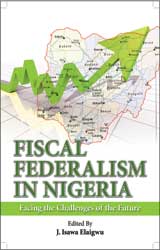
Fiscal Federalism in Nigeria: Facing the Challenges of the Future
Debates on Nigeria’s fiscal federalism preceded the gradual evolution of Nigeria into a colonial federal state in 1954. Issues of distribution of scarce but allocatable resources have often beclouded the desires of Nigerians to generate the resources that are expected to be shared. Throughout its history, it has been evident that Nigerians have always been sensi...
View Book Details Buy This Book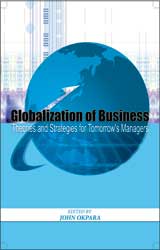
Globalization of Business: Theories and Strategies for Tomorrow�s Managers
Globalization, an inevitable phenomenon in human history, has been bringing the world closer through exchange of goods and services, advancements in information communication technologies (ICTs), global diffusion of technologies, and cultural awareness. Recent developments and trends within the global business arena present managers with challe...
View Book Details Buy This Book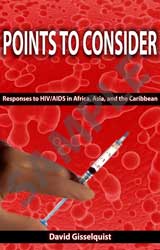
Points to Consider: Responses to HIV/AIDS in Africa,Asia, and the Caribbean
Since the early 20th century, when HIV began to circulate among humans, blood exposures during healthcare have contributed to the transmission of the virus. Despite all the money and attention directed at HIV/AIDS in the past several decades, these risks have remained. The book asks why, and seeks answers to a number of crucial questions: How much of...
View Book Details Buy This Book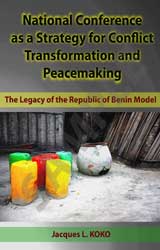
National Conference as a Strategy for Conflict Transformation and Peacemaking: The Legacy of the Republic of Benin Model
Events in the post Cold War era have challenged the notions of realism and realpolitik, with an upsurge in intrastate conflicts involving other actors than just the state. During this period, the international community has witnessed the limitations of the tenets of realism for addressing disastrous civil wars or ethno-political conflicts internal to the states....
View Book Details Buy This Book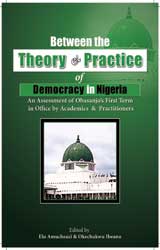
Between the Theory and Practice of Democracy in Nigeria: An Assessment of Obasanjo�s First term in Office by Academics and Practitioners
Obasanjo’s first term in office as a civilian president (1999 – 2003) was a major litmus test for the future of Nigeria’s fledgling democracy. Set in a critical conjuncture characterized by high popular expectations and international goodwill on the one hand and weak institutions and deep-seated social cleavages exacerbated by years of military rule ...
View Book Details Buy This Book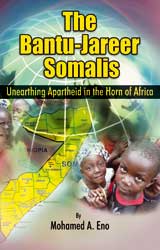
The Bantu-Jareer Somalis: Unearthing Apartheid in the Horn of Africa
Somalia is generally thought of as a homogenous society, with a common Arabic ancestry, a shared culture of nomadism and one Somali mother tongue. This study challenges this myth. Using the Jareer/Bantu as a case study, the book shows how the Negroid physical features of this ethnic group has become the basis for ethnic marginalization, stigma, social exclusion and ap...
View Book Details Buy This Book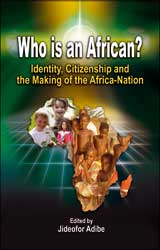
Who is an African? Identity, Citizenship and the Making of the Africa-Nation
(Foreword: Yakubu Gowon) Who is an African? At face value, the answer seems obvious. Surely, everyone knows who the African is, it would seem. But the answer becomes less obvious once other probing qualifiers are added to the question. How is the African identity constructed in the face of the mosaic of identities that people of African ancestry living w...
View Book Details Buy This Book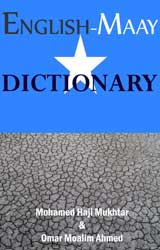
English-Maay Dictionary
Somali people speak quite a number of languages and dialects, Maay and Mahaa being the lingua franca of the majority. In 1972, the latter was put in a written format and became the national language of the country. This experiment alienated the other Somali languages and produced tremendous disenchantment, particularly on the part of the Maay speakers. In 2003, howe...
View Book Details Buy This Book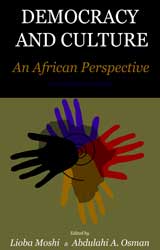
Democracy and Culture: An African Perspective
Since the end of the Cold War, Africa has witnessed a political rebirth and second liberation as decades of autocracy and dictatorship became gradually replaced by a new wave of democratization and plural political competition. This political rebirth has revived the Afro-optimism that accompanied the independence decade of the 1960s. This optimism, however, co-exists ...
View Book Details Buy This Book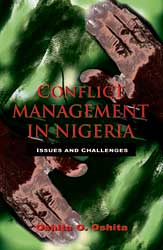
Conflict Management in Nigeria: Issues and Challenges
In Conflict Management in Nigeria: Issues and Challenges, Dr. Oshita O. Oshita, one of the leading peace researchers in Nigeria, interrogates a number of cross-cutting issues and challenges that may be encountered in the process of engaging with conflict mitigation in Nigeria. He explores the complex issues involved just as he analyses the challenges arising f...
View Book Details Buy This Book
© Adonis & Abbey Publishers Ltd. All Rights Reserved 2003 - 2026.


